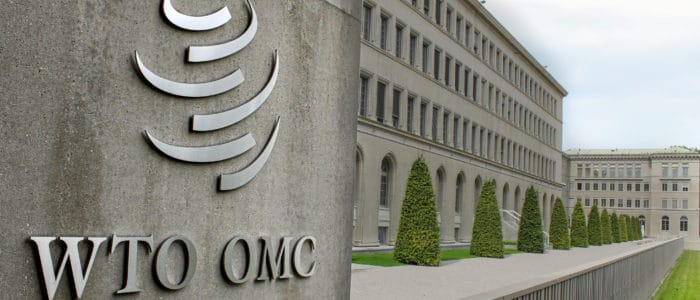Published
After Azevedo, What Next for the WTO?
By: Stuart Harbinson
Subjects: WTO and Globalisation

Roberto Azevedo will have served diligently as Director-General of the World Trade Organization for seven years when he leaves office at the end of August 2020. No one can doubt his commitment to the multilateral trading system. He has done his best but he inherited festering problems such as the failure to wrap up the long-running Doha Round. And he had to cope with the serious fall-out from the global financial and economic crisis.
Attention now turns to the succession. What type of leader does the WTO need now?
The challenges are everywhere. The Organization lacks political leadership amongst its membership. Trade wars look like they could easily get out of hand. The Appellate Body has become defunct, threatening the WTO’s dispute settlement function. Trade negotiations are largely at an impasse. Calls for reform of the WTO have fallen on largely deaf ears. Countries are distracted by the Covid-19 pandemic which, in the trade sphere, has uncovered the fragility of global supply chains, led to increases in export restrictions and spawned massive subsidisation. There are even calls in the United States, the historical progenitor of the GATT and the WTO, to withdraw from the organization. International economic cooperation has reached a nadir.
Who in their right mind would want this poisoned chalice? Putting individuals aside, for now, there are two profiles that come to mind.
The first would be a saviour in the mould of Peter Sutherland, the first Director-General who, through force of personality and argument and because he had the ear of key world leaders, brought the Uruguay Round to a successful conclusion.
Even a new Sutherland would have his or her work cut out in today’s world. The G20 talks a good game on trade but there is precious little evidence that, when the chips are down, they can deliver operationally. The world today is much more complicated geopolitically and geo-economically than it was thirty years ago. In current circumstances are leaders of great powers willing to listen to the head of an international organization? Having said that, a high profile Director-General could at least make the case publicly for open trade and international cooperation, and defend the WTO robustly. In this, he or she may have support from the business community.
Are there such people around? Could, for example, the United Kingdom – another progenitor of the system – produce a credible candidate? The UK is a new kid on the WTO block these days but has long professed undying commitment to the rules-based international trading system. It has decent credentials in many developing countries but might be thought of, by others, as a stooge.
The other type of successor to Azevedo could be in a lower-profile, technocratic, survival mould. Some might say “more of the same – which hasn’t worked”. The saviour type is certainly more attractive superficially.
However, there is an argument that the best thing the WTO can do right now is to keep its head down and concentrate on preserving the core of the system, which is the network of existing WTO agreements providing the basic plumbing for international trade. These agreements – covering a multitude of areas from technical barriers to trade, to SPS, customs valuation, import licensing, tariffs, trade in services and the trade-related aspects of intellectual property rights – fly below the radar and are often taken for granted. But business would certainly miss them if they disappeared.
By not confronting critics, and just getting on competently with its day-to-day business, the WTO might weather the storm and emerge intact when the environment is more conducive to constructive trade cooperation.
We shall soon see whether we are going to get a saviour or a survivor. One thing is for sure. What the WTO does not need right now is a messy and protracted fight over the succession. In particular, supporters of the system do not want to see candidates backed by rival superpowers battling it out. That would surely sow the seeds of further division and paralysis. Alas, history teaches us that that is what we may well get.
The WTO needs a Director General who has political clout in member capitals where the real deals are done. I am for an experienced politician coming from capitals that can revive the system.
Bashar H. Malkawi